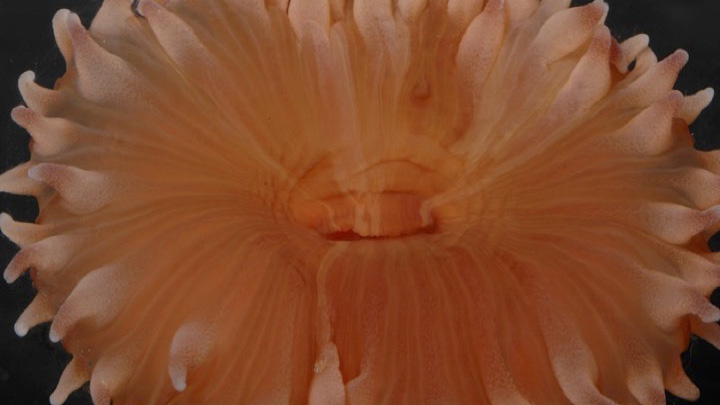
UMaine study finds Antarctic deep-sea coral larvae may be resistant to climate change
The larval health of an Antarctic cold-water coral species may be resistant to warming water temperatures, a University of Maine study finds, bringing new hope for the climate change resilience of deep-sea ecosystems in the Western Antarctic Peninsula.
The past few decades have shown unprecedented levels of warming, particularly in the Earth’s polar regions. The West Antarctic Peninsula in particular has shown the most dramatic warming in the Southern Hemisphere, with expected water temperature increases between 0.5 and 1.9 degrees Celsius by 2100.
Because they are long-lived and slow-growing, scientists have long thought that deep-sea corals in these Antarctic waters will not adapt well to changing temperatures, particularly in the sensitive larval stage.
“Even though their habitat is now changing faster than other places around the world, most marine animals in the Southern Ocean are thought to have a limited capacity to adapt to environmental shifts. Especially during the larval stage, when developmental processes are organizing and laying the foundations for key life-long functions like prey capture and growth, those environmental changes can have an outsize impact,” says Julia Johnstone, principal author of the study who conducted the research for her Ph.D. in marine sciences at the University of Maine Darling Marine Center before moving on to a position with the National Oceanic and Atmospheric Association in Charleston, South Carolina.
To test this hypothesis, researchers at the University of Maine’s Darling Marine Center along with Temple University, Bigelow Laboratory for Ocean Sciences and Haverford College looked at the larval development of the coral Flabellum impensum in a series of laboratory experiments that mimicked the increased seawater temperatures predicted for the 21st-century. The larvae were put in four temperature conditions — 1.5, 2.5 and 4 degrees Celsius above ambient conditions, plus the control — and were observed for settlement, mortality, larval size, development, deformity and cellular health over the course of 44 days.
The results showed that while temperature did not impact the larvae settlement, mortality or larval stress, the warmer temperatures did have a significant impact on the developmental rate. Larvae in warmer temperatures developed faster than those in colder conditions. The increased rate of development did not negatively impact the specimens, though, as it was not accompanied by deformity, mortality or cell death.
“These results were a real surprise, as it’s easy to imagine these small tiny larvae are fragile, but this study has shown otherwise, they are more robust than we imagined,” says Rhian Waller, co-author of the study and former associate professor at the University of Maine School of Marine Sciences, now at Gothenburg University in Sweden.
The results suggest that the larvae of this particular coral species are tolerant of warming temperatures during their most sensitive stages, which is significant for the rapidly changing deep-sea ecosystem of the West Antarctic Peninsula.
“In places like the Western Antarctic Peninsula, the need for these studies is urgent because we don’t yet know how most of the resident organisms will cope with warming, and the clock is ticking. As we face that reality, the fact that these coral larvae were tougher than we expected lets us know that, at least for some animals, there could be more to the story,” Johnstone says.
The study was published August 2022 in the journal Coral Reefs. The research was funded through the National Science Foundation.
Contact: Sam Schipani, samantha.schipani@maine.edu
